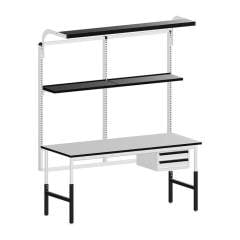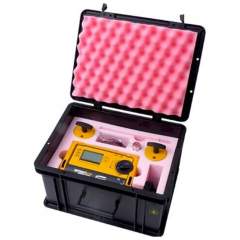JBC's Contribution to Advanced Soldering Applications
JBC's Contribution to Advanced Soldering Applications
Blog Article
The Role of Bosch Rexroth in Modern Manufacturing
Soldering is in the centre of contemporary electronics, linking the tiniest components on advanced world boards. As units shrink and their difficulty rises, the need for precision, performance, and trusted options in soldering has never been soldering station (lötstation) higher. That is wherever advanced soldering practices and tools step in, transforming the landscape of technology assembly.

Advanced Soldering Methods
Soldering is a strategy used to join two pieces of metal together by reduction a gel substance, named solder, between them. Typically, this was done using a heated metal and physically applying the molten solder.
But, with the increasing need for precision and efficiency in electronics assembly, new advanced methods of soldering have emerged. These practices provide improved control, reliability, and repeatability, creating them essential in contemporary technology manufacturing.
Area Install Engineering (SMT)
Floor mount technology (SMT) involves attaching electric components right onto the surface of a printed signal table (PCB).
Shifting the Soldering Landscape
Over the last decade, miniaturization in consumer electronics has increased by almost 65%, forcing producers to embrace smarter approaches. Parts like microprocessors and multi-layer panels involve determine reliability that old-fashioned soldering just can't guarantee. That's why experienced experts are going towards innovative temperature-controlled soldering programs and clever soldering tools.
Recent industry reports disclose a 40% increase in investments toward wise soldering answers between 2019 and 2023. Operating factors are the demand for high-performance electronics, specially in the medical, automotive, and aerospace sectors.
The Increase of Temperature Precision
One important development could be the use of soldering solutions that provide real-time heat control. Information points to a 35% reduction in disappointment charges when working with temperature-regulated soldering irons compared with their main-stream counterparts. These methods automatically calibrate and keep heat degrees, stopping solder cool bones or overheating fragile components.
Professionals record that adapting to these techniques decreases rework time by almost 25%, more focusing the economic and creation benefits.
Better Instruments for Greater Perform
Another development could be the shift towards ergonomic, user-friendly soldering stations. Surveys among electronics professionals indicate that 72% choose methods with fast-heating recommendations, electronic displays, and programmable profiles. That change isn't just about effectiveness; ergonomic design significantly reduces office injuries and fatigue, major to higher productivity.
Complicated electric careers now usually involve detail at the micron level. Sophisticated soldering pens with programmable feedback and micro-tweezers have ver quickly become essential. Mathematical reviews from big construction firms display up to and including 50% increase in first-pass produces following adding these advanced tools.
The Rising Influence of Knowledge in Soldering

Industry statistics display a fivefold escalation in the adoption of data-enabled soldering programs within the last five years. By recording temperature, idea living, and also operator actions, these intelligent systems give actionable insights. Quality get a grip on teams leverage these records to tighten functions, substantially decreasing the problem rate across creation lines.
Seeking Forward in Complicated Electronics Assembly
The electronics industry's race towards better, smaller, and more complex styles will only improve needs on soldering. Trending data obviously highlight how modern, clever soldering alternatives are actually a foundation for supreme quality electronics.
For engineers, remaining ahead means understanding and adopting these next-generation methods and workflows. The data is obvious: those who invest in smarter soldering alternatives will lead the way in performance, stability, and effective generation for another trend of complex electric devices. Report this page